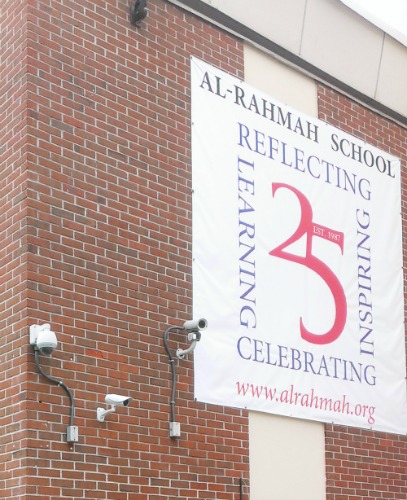
In the month of October, the Islamic Society of Baltimore (ISB) received a $74,675 grant from the Nonprofit Security Grant Program (NGSP) run by Maryland Emergency Management Agency (MEMA). The grant will be used towards upgrading, enhancing and adding to ISB’s security infrastructure, according to the official letter sent by ISB President Mohammed Abdul Khadeer.
In place since 2005, the grant is a part of Department of Homeland Security’s Urban Areas Security Initiative (UASI). To be eligible a non- profit organization must be, “determined by the Secretary of Homeland Security to be at high risk of terrorist attack due to their ideology, beliefs, or mission.” For fiscal year 2014, $13,000,000 was allocated for the NGSP.
Muslim Link spoke with Faisel Maniar who sits on ISB’s Grants Committee with Mohsin Majid and Attaulla Khan as members and Abid Husain as the chair. When the notification for the FEMA
grant was announced, the committee wasted no time and developed the winning proposal. The committee also benefited with inputs from Rehan Alavi, former ISB Council member.
The news of ISB’s 2014 receiving the grant was blogged out on several anti- Muslim websites, which often spew hate rhetoric about Muslims and keep regurgitating fear tactics about ‘stealth
jihad’. Their main objection is that tax payer’s money is being used to keep Muslim schools and religious centers— tax exempt organizations—safe from attacks. ISB has been a recipient since 2005.
Only a handful of Muslim organizations have received this grant. According to the Forward, a Jewish daily, Jewish institutions throughout the United States received $9.7 million in federal anti- terrorism grants out of a total of $10 million in 2012, approximately 97% of the total budget. Other recipients included Catholic churches and a Planned Parenthood center.
After the Oak Creek Sikh temple massacre, as well as several masjid attacks including in Tennessee and Missouri, Islamic Centers are a prime target for terrorist activity, especially from white supremacists. The Council on American Islamic Relations recommends that Muslim non-profits apply for the grant.
In assessing the security risk, Maniar says that there is always risk, as ISB is one of the largest Muslim congregations in the Maryland area. More than 900 students attend the Al-Rahmah School, Nursery, Sunday School, Hifz School, Seminary and other weekend and after- school programs. Currently, ISB serves more than 2000 worshippers every Friday.
Using the same grant, Baltimore-based Bais Hamedrash and Mesivta School installed a new gate to the parking lot and placed cameras throughout the building. Al-Huda School in College Park, MD, also received a government grant this year, but it was for aging schools and administered by the Maryland State Department of Education. Al-Huda used the approximately $27,000 received to install a code and card reader controlled security gate for the school’s parking lot.
‘Proper planning and preparedness are the keys to surviving a disaster,’ according to MEMA. ISB hosts several interfaith, intercommunity activities and is cooperative with law enforcement.
“We don’t want to doubt anyone, but keeping our doors open for anyone to come and worship adds a risk factor,” said Maniar. He quoted several instances of objects thrown in to the masjid premises. One particular instance stands out where a pickup truck came into the campus towards the main building entrance late at night and honked for a prolonged time and then sped off. With the new surveillance system, any car that comes into the premises can be tracked.
A major part of grant will be used for installing fencing, cameras, card readers, gate access control equipment and other security equipment.
Higher definition security cameras will be installed across the campus, recording footage backed up on servers. “With this [grant] we are improving the cameras, [installing] them in wooded areas and implementing controlled access in secure zones within the campus” says Maniar. According to Maniar, the current ISB Council with inputs from directors of the institutions at ISB is conducting a Facilities Risk Evaluation and plans on implementing a Security Master Plan for the campus.
The grant committee is working on the environmental and historic preservation (EHP) submission and work is expected to complete within 3-4 weeks.
Grants are often delayed because many NSGP grant recipients fail to submit complete submissions. According to the federal agency, common omissions include failure to provide a complete project description on the EHP form that describes what work is proposed; not providing a street address (preferred) or latitude/longitude coordinates; not providing a project site aerial map, and the ages of any buildings or structures on which or adjacent to which work is proposed. Ground-level color photos showing project boundaries and specific locations of installations or construction sites, and adequately describing the extent of ground disturbance are also requirements.
Since the ISB committee has been through the process before, they are confident that work will start on time, says Maniar.
“We don’t want to wait until something happens to improve security,” says Maniar. “We cannot stop an attack, but this can be a deterrent for anyone planning an attack.”









Comments powered by CComment